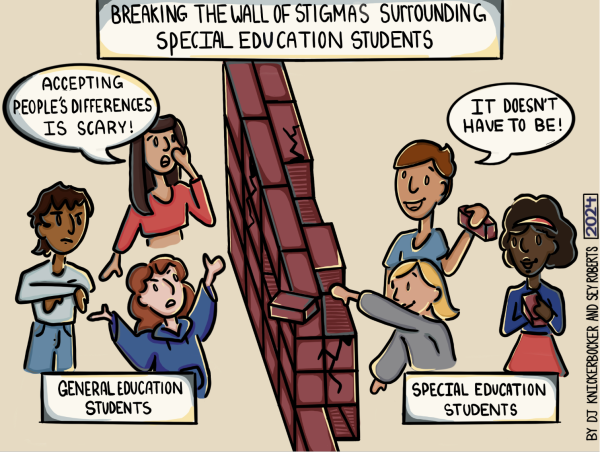The Effect of Bullying
Editorial Contest Winner
December 20, 2016
According to Yale University, the third leading cause of death among young people is suicide. 14 percent consider it, and 7 percent attempt it. In addition, those who have been bullied are 2 to 9 percent more likely to consider suicide. And where does bullying occur? School. Bullying is a problem that every school knows about, but is too scared or skittish to face the problem head on. Sure, counselors are “always there for you” and schools are “cracking down on bullying”, but are they really? If they were truly solving the problem, 160,000 American youths wouldn’t be staying home from school every day because they fear bullies (American Foundation for Suicide Prevention). If schools were effectively handling the bullying problem, these students wouldn’t be spending the school day at home. This sends the message that a bully’s education is more important than their victim’s; no student’s education should be valued above another’s.
Schools need to revise their bullying campaigns and take a stronger stand against bullying. Many parents don’t have any idea that their child is a bully. If parents are informed that their child is being a bully, they may act upon it. Schools must strengthen and incorporate the role of counselors in the classroom; let counselors address and talk to students both as a class and personally. Hopefully, this will make teenagers know and feel comfortable with their counselor, both in and outside of class. Take Helena High as an example. Counselors at HHS say that, on average, around fifty students come to them on a regular basis for help pertaining to personal matters. That may seem like a lot, but this is only 12 percent of students on the counselor’s caseload. If counselors are more involved in students’ lives, that percentage may go up.
Schools cannot back down in the face of a bully. Teachers need to be better at recognizing the signs of bullying and helping a student to move past the conflict. Many teachers see a child being bullied and don’t want to involve themselves. Why? Reasons vary. Perhaps the bully scares them or maybe they think it’s just teasing or messing around. Maybe they don’t even think that it’s worth their time. How would you, as a teacher, feel if you saw a child that you had suspected was being bullied in the obituary of the newspaper because they had committed suicide? When a student is being bullied, it is an educator’s job to step up and prevent it from happening. Schools need to keep students in the classroom, and standing up against bullying is the way to do it.












